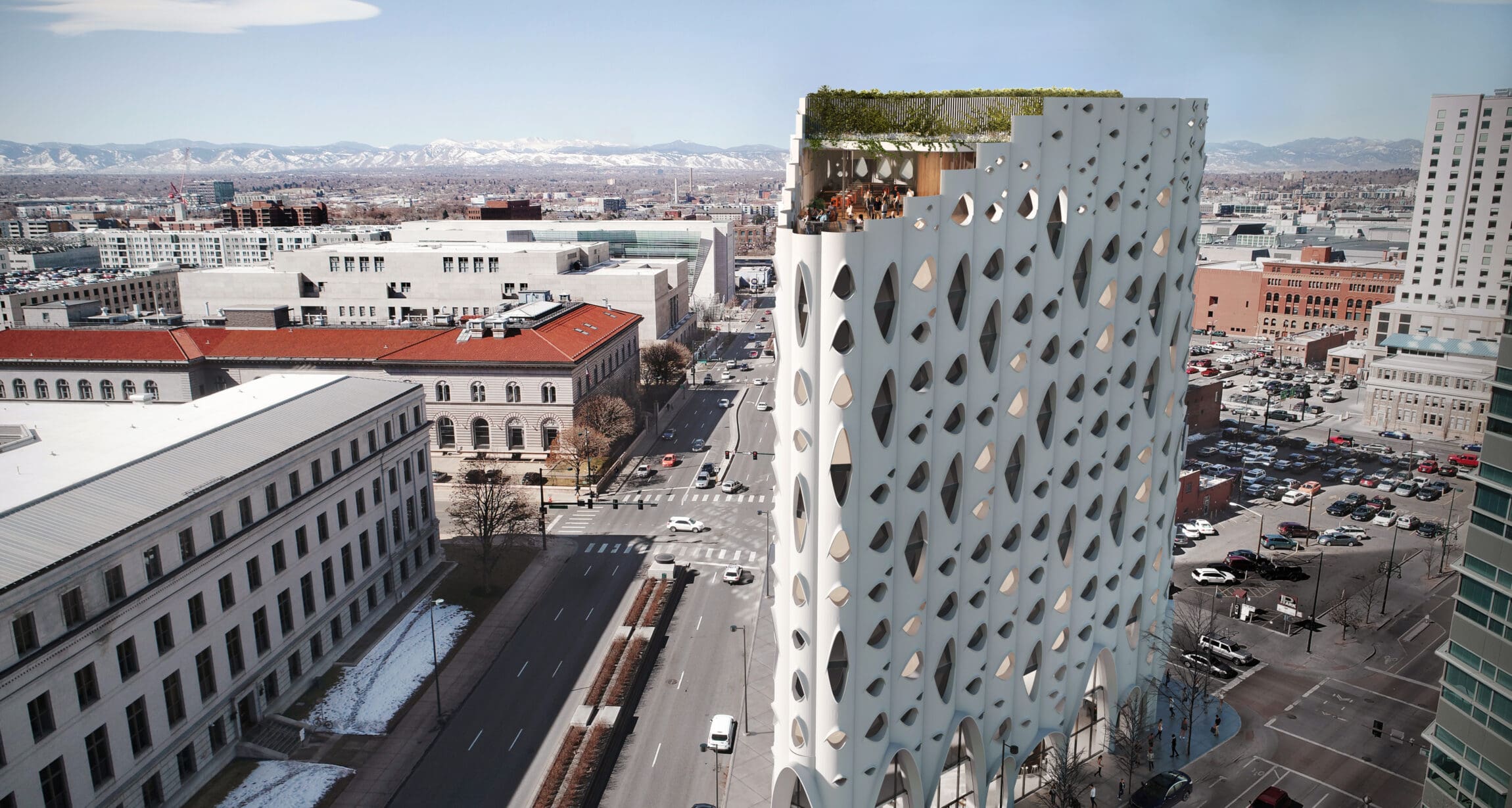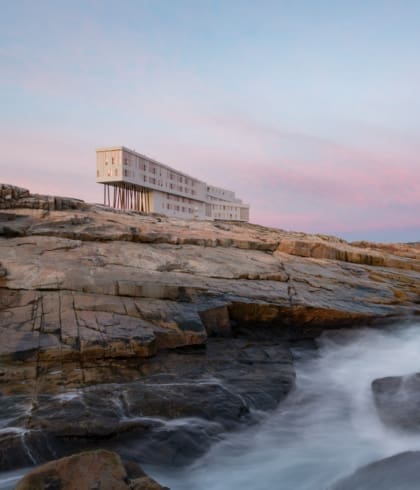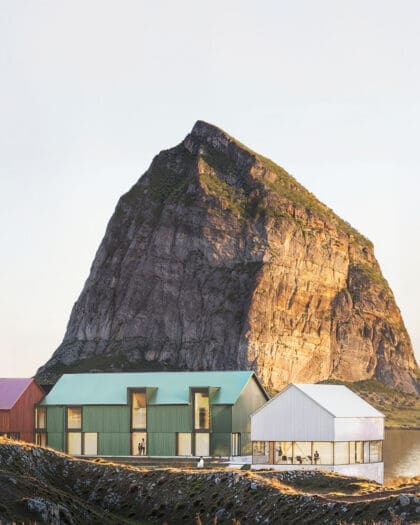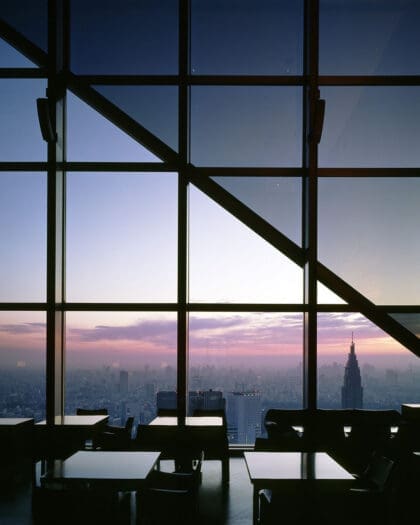
How is the hotel industry innovating beyond greenwashing?
The hospitality sector is often quick to champion its eco-credentials. But are these claims as green as they seem, and can new sustainability regulations help to innovate business models?
Against a backdrop of increasingly familiar extreme weather events, doomsday-scenario headlines and ominous updates from the Intergovernmental Panel on Climate Change (IPCC), conscious travellers have become acutely aware of the need to make more sustainable lifestyle choices.
Tourism and the hospitality industry regularly come under fire when discussing sustainability. The spotlight is often shone on transportation – championing trains, chastising planes – but the hotel industry also contributes about one per cent of global CO2 emissions. To hit the targets laid out by the Paris Agreement, the Sustainable Hospitality Alliance calculated in 2017 that the sector needed to reduce per-room carbon emissions by at least 66 per cent by 2030 and 90 per cent by 2050 – messaging that seems to be taking root across the sector, albeit painfully slowly.
Among the first initiatives to gain any real global traction was the announcement to phase out single-use plastics by a host of major hotel groups, including Marriott and InterContinental in 2018. Six Senses has notably shunned all single-use plastics since 2022, but for the majority the reality is more difficult.
“While highly focused on working towards zero-waste goals, the many industries we have to source from in order to run our properties are not yet plastic-free. We cannot control every aspect of how things are made or delivered to us,” says Pranav Jampani, vice president of sustainability & impact at SH Hotels & Resorts, which counts the responsibly minded 1 Hotels group within its portfolio, where guests use wooden key cards and in-room recycling is encouraged.
Increasingly sophisticated sustainability efforts are becoming more common, with would-be customers kept informed of everything from switches to renewable energy, recycling wastewater and reducing chemicals in laundry to localising supply chains, spruced up vegetable gardens and community outreach.

A green incentive
Sustainability certainly sells – Booking.com’s 2023 survey found that more than 75 per cent of customers wish to travel more sustainably – up from 61 per cent in 2021. It is therefore no surprise that the industry is quick to champion its green credentials – something visible on a rudimentary flick through many hotel websites and booking platforms.
But for all the excellent work being done in many quarters, the fact remains that these claims are often hard to quantify and identifying the companies making good on their promises is tough.
After all, it was the hospitality industry that spawned the term greenwashing. While staying in a Fijian hotel in the 1980s, environmentalist Jay Westerfield noticed a policy promoting guest’s reuse of used towels that played upon growing environmental concerns, yet was actually designed as a cost-saving measure for the hotel – something he later called out in an essay.

“Words like ‘green’ and ‘eco’ are bandied around a lot, so it’s incredibly difficult for people to differentiate which claims are genuine,” says Dr Susanne Etti, global environmental impact manager at Intrepid Travel, a Melbourne-based, B Corporation Certified tour operator focused on responsible tourism.
Today ‘greenwashing’ refers to any eco-marketing spin that may not actually deliver on its claims, with the hotel industry particularly known for its vague language when it comes to sustainability. “The sector is waking up to address the climate crisis. However this is not the norm, neither are the messages honest and transparent,” says James Soane, director at architecture firm Project Orange, whose portfolio includes the impressive London outpost of Room2, billed as the world’s first net-zero hometel. “Yet there are brands and companies that are beginning to address these questions by providing guests with factual information rather than novelties like a beehive on the roof.”

Why embodied carbon is important
Now with four locations across the UK, Room2 is committed to building “whole life net zero” properties, meaning all carbon emissions from construction and operation through to the end of the building’s life are all equal to zero. These “hometels” feature solar panels, ground source heat pumps and interiors that make use of FSC-certified timber. What’s noteworthy here is that, unlike many perceived trailblazers, Room2’s calculations take “embodied” carbon into account.
Referring to the emissions released during the renovation and construction of a building, embodied carbon can account for up to 50 per cent of the total emissions associated with a building over its entire life cycle. Yet calculations – and therefore marketing – often only refer to operational emissions. “We had to go back to the drawing board and unlearn and then relearn a lot of stuff,” Soane says of the process, noting how regenerative design and circular, cradle-to-cradle concepts are helping drive emissions down within the sector. “It’s very technical and requires much more emphasis on collaboration with new kinds of consultants who can accurately deliver calculations on the full carbon life cycle of a building.”

When this metric is considered, new-builds will almost always emit more than a renovation or reused building, a prefabricated construction or – inevitably – something less permanent like a safari camp concept. Therefore it’s crucial that embodied carbon is considered to enable greater overall transparency and smarter hotel construction decisions. There is a growing impetus to include embodied carbon and report on how this contributes to the overall carbon footprint,” says Eleni Andreadis, director of sustainability and corporate social responsibility at Sani Resort, a collection of family-focussed luxury hotels on the Greek mainland and part of a small chain of properties across Europe. It notably became the first carbon-neutral resort in Greece in 2020. “We are pursuing green building certifications for all new buildings, which incorporates criteria to do with reducing embodied carbon, such as using cement alternatives or raw materials that have a lower carbon footprint.”

Carbon-positive innovations
Populus opens in Denver this summer, claiming to be the US’s first carbon-positive hotel. With a design modelled upon Colorado’s native Aspen tree, this sleek new spot intends to sequester more carbon than the combined embodied and operational footprints of the hotel throughout its life cycle – going beyond net-zero to have a net-positive impact on climate change.
To get there, it uses recycled materials and a low-carbon concrete mix (said to emit 30 per cent fewer emissions than standard concrete) and offers no on-site parking. Then, to offset the remainder of the hotel’s embodied carbon, its developer Urban Villages has planted more than 70,000 trees in Colorado. Even more impressively, Populus aims to retain its carbon positive status throughout its lifetime by tracking, reducing and offsetting the carbon emissions of its operations in an ongoing process that’s offset with each guest stay.

"The trees planted through carbon offsetting have died because of climate change, which is a horrible irony"
Complexities of offsetting
As progressive as Room2 and Populus’s endeavours are, both employ the concept of carbon offsetting. This allows businesses to compensate for their emissions by supporting projects that reduce emissions elsewhere – such as investing in reforestation – and is a contested subject. While these schemes are undoubtedly laudable, and something that all hotels should be doing as a minimum, farming out offsetting responsibilities to a third-party entitles hotel groups to market their properties as net-zero or even carbon-positive, when the reality is more complex.
Carbon offsetting doesn’t reduce emissions at source, and it is recommended that offsetting should be seen as a last resort once all other measures to reduce or avoid emissions have been explored. “Carbon offsetting is no longer seen as OK as you’re outsourcing it and putting the problem elsewhere,” says Soane. “With some of these schemes, particularly in Latin or Central America, the trees planted have since died because of climate change, which is a horrible irony.”

The rise in certifications
Against such complexity, what hope do travellers have in drawing conclusions from hotel websites? Some clues lie in the form of an increasing array of third-party certifications, all of which can give indicators to how seriously a company takes its sustainability commitments. For example, B-Corp status denotes high standards of social and environmental performance, transparency and accountability. LEED and BREEAM accreditation rates a building’s green credentials, while environmental certifications for how a hotel is operated include Green Key, Green Globe, ISO 14001 and EU Ecolabel.
“Certification labels help demonstrate to customers that companies that are genuinely committed to being better and doing the right thing,” says Etti. “Being a B-Corp helps us to be transparent and accountable. We need to go through a rigorous recertification process every three years, so it holds us to a high standard and shows us areas where we can improve in our business.”
However, Soane sounds a cautionary note. Like offsetting, green certification isn’t yet compulsory. And beyond the best known labels, there are some 200 companies worldwide offering sustainable accreditation and certification processes within the hospitality sector. These differ in prestige and qualifying criteria – some self-assessed, others requiring in-depth external audits – adding a confusingly opaque layer, as well as scope for use of misleading language. “There are definitely benefits to certification but I find that you can cheat the metrics and often offset certain things,” he says. “You can build a concrete hotel and still get an ‘excellent’ rating. So the question has to be asked: is it going far enough?”
“Carbon labelling should become standard practice in the travel industry”

The case for carbon labelling
One route that some organisations are taking is the use of carbon calculators, which estimate a traveller’s likely footprint. Intrepid Travel has introduced such labels to more than 500 of its itineraries, which show the total CO2-e (Carbon Dioxide Equivalents) of the trip per traveller, per day – much like a nutrition label. “We know that travellers want to understand the environmental footprint of their travel choices but sometimes they don’t know where to start,” says Etti. “They can compare the data with everyday activities and can make better-informed decisions on the holiday they want to take.”
Being able to break down the carbon emissions of the trips also allows the Intrepid Travel team to better understand their own operations and dial back the carbon. “We can’t shy away from our impact, and we can’t effectively reduce what we don’t measure,” she says. “I believe carbon labelling should become standard practice in the travel industry. Having an industry standard will be vital to help customers make informed decisions and help companies to measure their impact on the environment.”

Can tighter legislation signal the end of greenwashing?
While education is an excellent way to positively influence consumer behaviour, putting the onus on travellers isn’t the solution. Without strong governance, sustainability-focused investment and a dramatic scaling up of existing efforts, the sector will simply not move fast enough. Yet positive change is on the horizon in the form of tighter rules around ESG commitments. In the UK, the Advertising Standards Authority is clamping down on greenwashing, making it harder to get away with inaccurate or exaggerated claims, while the EU gave the green light to a new law banning misleading environmental claims on products and labelling, which overall, should improve both transparency and accountability in the sector. In America, the Securities and Exchange Commission is set to decide imminently upon enhanced climate disclosure rules for US-listed companies.
While progress is being made across the hospitality sector to reduce its planetary impact, it’s clear that the widespread presence of genuinely net-zero carbon hotels is a long way off, and an ambition that will not be achieved unless hotel groups, governments and tourism boards dedicate greater innovation and resources to tightening up on emissions in the hospitality sector – and the language adopted around sustainability.
“I would encourage travellers to be more demanding of the hotels and destinations they visit; we should be held to a higher standard,” says Andreadis. “There is power there, which would put pressure on the hospitality industry to step up even more.”














